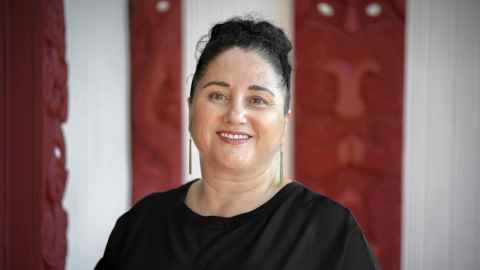Māori and Pacific doctorates result in big community gains
21 July 2025
Research highlights how Māori and Pacific people with PhDs improve outcomes in their communities and reduce inequalities.

A new study, 'Highly Qualified Māori and Pacific Peoples in Aotearoa', funded by the Māori Centre of Research Excellence, Ngā Pae o te Māramatanga (NPM), has found that Māori and Pacific PhD graduates experience significantly better outcomes than others in their communities without a doctorate.
These graduates are more likely to be employed in professional roles, have higher earnings, and have higher home ownership rates.
The authors of the study compared Māori and Pacific graduates to non-Māori and non-Pacific graduates. They found that all three groups had similar economic and social outcomes (e.g., home ownership rates), however, for other indicators like annual earnings, the outcomes of Māori doctorates were significantly better.
The study highlights a need for the Aotearoa tertiary education system to promote and support services and resources to increase the number of Māori and Pacific PhD students, says NPM Pou Matarua, Professor Melinda Webber (Faculty of Arts and Education).
“Decreasing barriers for Māori and Pacific to excel at the highest levels of education has the potential to reduce disparities in Aotearoa across a range of areas. It creates benefits for wider whānau, their communities, and society in general,” she says.
“While we are not saying it is necessary for everyone to go out and get a PhD if you want to live a good life, the study shows that the government needs to continue to support higher education as a way to reduce current societal disparities and support positive Māori and Pacific futures."
Every dollar invested in Māori and Pacific higher education returns exponentially in higher incomes, better health, stronger communities, and reduced inequality.

Associate Professor Sereana Naepi, co-author of the study, says despite the growth in the number of Māori and Pacific Peoples gaining PhDs, little was known about these students’ longer-term outcomes – until now.
"This study is important because it provides conclusive evidence that higher education can be transformative for our people and their communities, and has ongoing ripple effects for them.
“Every dollar invested in Māori and Pacific higher education returns exponentially in higher incomes, better health, stronger communities, and reduced inequality – making the case for urgent, sustained investment in education pathways that unlock potential and transform lives across Aotearoa,” she says.
The last two decades has seen substantial increases in both Māori and Pacific peoples participating in higher education. A 2006 study showed only 6.4 percent of Māori had a degree and in in 2018 that rose to 11.5 percent. For Pacific peoples the percentage rose from 5 percent to 9.5 percent.
NPM's founding co-directors Distinguished Professor Linda Smith and Emeritus Professor Michael Walker established Te Kupenga o MAI programme in the early 2000s, with the vision of dramatically increasing the number of Māori PhDs. Indigenous people throughout the Pacific take part in the programme, and this new study evidences the transformative benefits of that vision and NPM’s long-term work to support postgraduate researchers.
Media contact
Te Rina Ruka-Triponel | Kaitohutohu Pāpāho Māori
E: te.rina.triponel@auckland.ac.nz